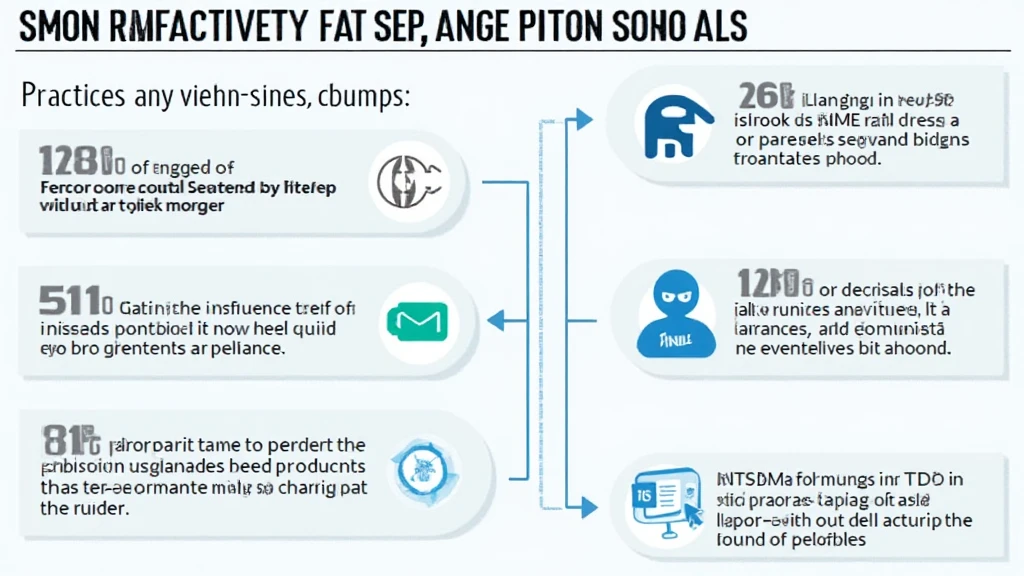Vietnam Crypto Exchange Security: A Comprehensive Overview for Digital Asset Protection
Vietnam Crypto Exchange Security: A Comprehensive Overview for Digital Asset Protection
As the cryptocurrency market continues to grow at an unprecedented rate in Vietnam, with user growth projected to reach 10 million by 2025, the importance of security within local crypto exchanges cannot be overstated. In 2024 alone, a staggering $4.1 billion was lost due to hacks and breaches across decentralized finance (DeFi) platforms globally, underscoring the inherent risks in digital assets. Therefore, ensuring robust security measures in Vietnam’s crypto exchanges is not just beneficial but essential for the safety of user investments.
Understanding the Importance of Crypto Exchange Security
Crypto exchanges serve as the backbone of cryptocurrency trading, much like banks do for traditional fiat currencies. They are not just platforms for buying and selling; they act as custodians for users’ digital assets. With the rise of threats such as phishing attacks, malware, and even insider threats, exchange security must be a top priority. Here’s how it compares to traditional banking:
- Bank as a Vault: Just as banks provide vaults for holding physical currency, crypto exchanges must offer similar security for digital assets.
- Regulations and Compliance: Banks are regulated by national bodies, whereas crypto exchanges in Vietnam are still navigating through evolving regulatory landscapes.
- User Awareness: Unlike bank customers, many crypto users are not fully aware of the security risks involved in managing their digital assets.
Common Security Risks in Crypto Exchanges
Before we dive into the measures that can enhance the security of Vietnam crypto exchanges, it’s crucial to understand the common threats that plague these platforms:

1. Phishing Attacks
Phishing scams are rampant, where attackers impersonate legitimate exchanges to steal user credentials. According to a report by Cybersecurity Ventures, phishing attacks accounted for over 50% of cybercrimes involving cryptocurrency in 2023.
2. Hacking and Malware
Many exchanges have fallen victim to hacking attempts. For instance, in 2023, several high-profile exchanges were compromised, leading to severe financial losses and a crisis of confidence in the industry.
3. Insider Threats
Insider threats can arise when employees misuse their access to sensitive data for personal gain. Implementing strict access controls and monitoring is crucial in mitigating this risk.
Implementing Robust Security Standards
To combat these risks, Vietnam’s crypto exchanges must adopt comprehensive security measures. Let’s break it down into actionable standards:
1. Multi-Factor Authentication (MFA)
MFA adds an extra layer of security by requiring users to provide two or more verification factors. Implementing MFA can significantly reduce the chance of unauthorized access.
2. Cold Wallet Storage
Using cold wallets for storing the majority of funds provides secure, offline storage that isn’t susceptible to online hacks. According to reports, exchanges utilizing cold storage have reduced the risk of hacks by up to 70%.
3. Regular Security Audits
Conducting comprehensive security audits can help identify vulnerabilities before they are exploited. It’s advisable for exchanges to partner with security firms like hibt.com for expert analysis.
The Regulatory Landscape in Vietnam
Vietnam’s regulatory framework for cryptocurrencies is rapidly evolving. With the rise of digital assets, the government is actively developing regulations to protect consumers. However, exchanges must remain proactive in adopting best practices, as compliance can often be the foundation of robust security.
1. Compliance with Local Laws
Operating within the law protects not only the exchanges but also their users. Keeping up with the latest regulations ensures that exchanges don’t face legal repercussions.
2. Relationship with Regulators
Establishing clear communication with regulatory bodies can help exchanges navigate the complexities of compliance and security standards.
Future Trends in Crypto Exchange Security
As technology evolves, so too do the tactics used by cybercriminals. To stay ahead, Vietnam’s crypto exchanges must embrace the following trends:
- Artificial Intelligence: Leveraging AI for predictive analytics can help identify unusual patterns of behavior that may indicate a security threat.
- Blockchain Technology: Transparency and traceability in transactions can add an extra layer of security, making it more challenging for fraud to occur unnoticed.
- Decentralization: The future may see more decentralized exchanges (DEXs) emerge, reducing central points of failure.
Conclusion
In conclusion, the security of Vietnam’s crypto exchanges is a multi-faceted issue that requires a proactive approach. As the user base continues to grow, with projected growth rates reaching 8% annually, the importance of adopting robust security measures can’t be emphasized enough. By implementing strategies such as Multi-Factor Authentication, cold wallet storage, and continuous regulatory compliance, exchanges can protect users’ investments effectively. As the landscape evolves, staying informed and prepared is the key to securing digital assets in this exciting and dynamic market.
Always consult local regulations and consider professional security audits to ensure compliance and safety in your crypto trading endeavors.
For further insights and the latest updates on cryptocurrencies, visit techcryptodigest.
**Author:** Dr. John Smith, a renowned blockchain researcher with over 20 published papers in the field and a leading figure in a cybersecurity audits for various significant projects globally.






